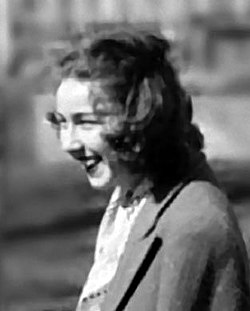Flannery O'Connor Quote
Jesus thrown everything off balance. It was the same case with Him as with me except He hadn't committed any crime and they could prove I had committed one because they had the papers on me. Of course they never shown me my papers. That's why I sign myself now. I said long ago, you get you a signature and sign everything you do and keep a copy of it. Then you'll know what you done and you can hold up the crime to the punishment and see do they match and in the end you'll have something to prove you ain't been treated right. I call myself the Misfit because I can't make what all I done wrong fit what all I gone through in punishment.
Flannery O'Connor
Jesus thrown everything off balance. It was the same case with Him as with me except He hadn't committed any crime and they could prove I had committed one because they had the papers on me. Of course they never shown me my papers. That's why I sign myself now. I said long ago, you get you a signature and sign everything you do and keep a copy of it. Then you'll know what you done and you can hold up the crime to the punishment and see do they match and in the end you'll have something to prove you ain't been treated right. I call myself the Misfit because I can't make what all I done wrong fit what all I gone through in punishment.
Related Quotes
Let my silence grow with noise as pregnant mothers grow with life. Let my silence permeate these walls as sunlight permeates a home. Let the silence rise from unwatered graves and craters left by bomb...
Kamand Kojouri
Tags:
abuse, abused, activism, activism poems, activist, amnesty, bellies, bombs, broken hearts, coming together
About Flannery O'Connor
Mary Flannery O'Connor (March 25, 1925 – August 3, 1964) was an American novelist, short story writer, and essayist. She wrote two novels and 31 short stories, as well as a number of reviews and commentaries.
O'Connor was a Southern writer who often wrote in a sardonic Southern Gothic style. She relied heavily on regional settings and grotesque characters, often in violent situations. In her writing, an unsentimental acceptance or rejection of the limitations, imperfections or differences of these characters (whether attributed to disability, race, crime, religion or sanity) typically underpins the drama.
O'Connor's writing often reflects her Catholic faith, and frequently examines questions of morality and ethics. Her posthumously compiled Complete Stories won the 1972 U.S. National Book Award for Fiction and has been the subject of enduring praise.
O'Connor was a Southern writer who often wrote in a sardonic Southern Gothic style. She relied heavily on regional settings and grotesque characters, often in violent situations. In her writing, an unsentimental acceptance or rejection of the limitations, imperfections or differences of these characters (whether attributed to disability, race, crime, religion or sanity) typically underpins the drama.
O'Connor's writing often reflects her Catholic faith, and frequently examines questions of morality and ethics. Her posthumously compiled Complete Stories won the 1972 U.S. National Book Award for Fiction and has been the subject of enduring praise.
